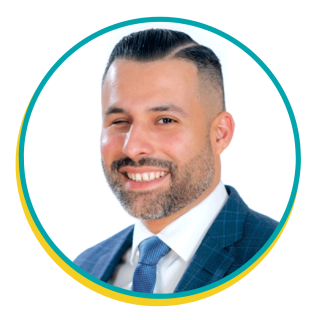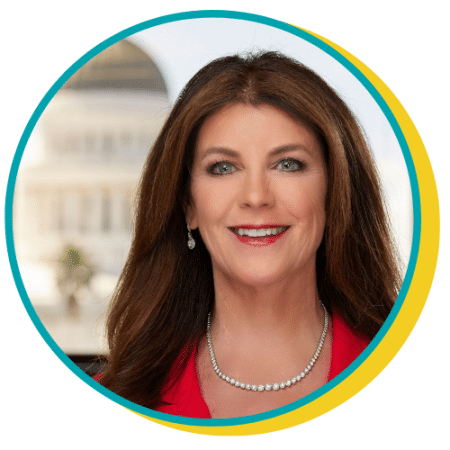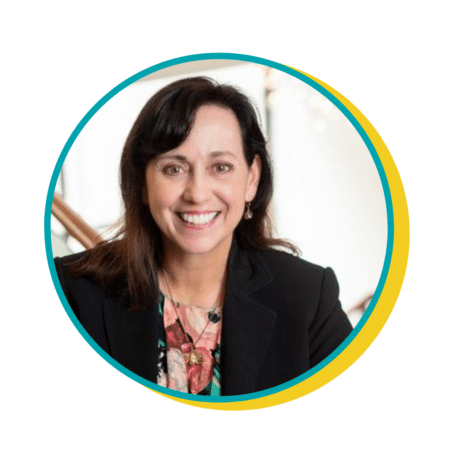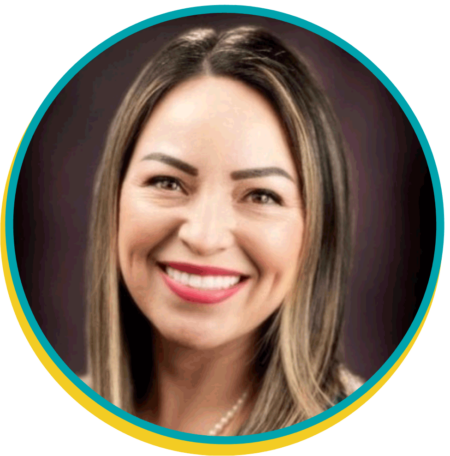 That’s the story we’re sharing in this new limited series presented by CASBO and WestEd. Each episode, our host Jason Willis welcomes education leaders and practitioners to discuss funding, educational improvements and advancing resource equity across all levels of California’s public education system. We’ll explore their motivations, the tools they’re using, and what’s working and what they’ve learned. Join us to tap into the experiences of guest experts and colleagues who are doing the work every day of ensuring a more equitable allocation of resources. It’s valuable insight you won’t want to miss!
That’s the story we’re sharing in this new limited series presented by CASBO and WestEd. Each episode, our host Jason Willis welcomes education leaders and practitioners to discuss funding, educational improvements and advancing resource equity across all levels of California’s public education system. We’ll explore their motivations, the tools they’re using, and what’s working and what they’ve learned. Join us to tap into the experiences of guest experts and colleagues who are doing the work every day of ensuring a more equitable allocation of resources. It’s valuable insight you won’t want to miss!
Season 2, Episode 9:
The Intersection of Language and Disability for Multilingual Learners

This episode examines how schools can better identify and support the needs of multilingual students with disabilities. Focusing on this intersection highlights a key question for district leaders: how to effectively serve the needs of all students.
Host Jason Willis discusses this issue with WestEd experts Jamey Burho and Elizabeth Burr, who specialize in policies and practices for multilingual learners with disabilities.
Guests:
Elizabeth Burr, Senior Research Associate at WestEd
Jamey Burho, Senior Research Associate at WestEd
Season 2, Episode 8:
California’s New Equity Multiplier & Related School Accountability System Changes

Dig into California’s Equity Multiplier, a $300 million program aiming to close achievement and opportunity gaps while increasing educational equity.
Policy experts Natalie Wheatfall-Lum and Sara Pietrowski join host Jason Willis to discuss the program’s funding allocation, policy changes and potential impacts on California students at high-poverty schools.
Guests:
Sara Pitrowski, Policy Director at the State Board of Education
Natalie Wheatfall-Lum, J.D., Director of P-16 Education Policy at The Education Trust – West
Season 2, Episode 7:
School Closures and Consolidations in California: Deepening Our Understanding

School finance and policy veteran Carrie Hahnel, Senior Associate Partner at Bellwether, joins host Jason Willis for a timely discussion on California school closures and consolidations.
Hahnel and Willis explore how declining enrollment and budget pressures are forcing tough choices for schools across the state, resulting in closures and consolidations with significant equity implications.
Guest:
Carrie Hahnel, Senior Associate Partner, Bellwether
Season 2, Episode 6:
Advancing Equity Through Locally-Driven Funding Formulas: LAUSD’s Groundbreaking Student Equity Need Index (the “SENI”)
The Student Equity Need Index (SENI) is a groundbreaking tool that uses comprehensive academic and community-based indicators to rank schools from highest to lowest according to student need.
In this episode, we go deep inside the SENI with Pedro Salcido and Jessenia Reyes, who share how it was developed, its impact to date, and how districts around the state can learn from it.
Guests:
Jessenia Reyes, Associate Director of K-12 Policy, Catalyst California
Padro Salcido, Deputy Superintendent of Business Services and Operations, Los Angeles USD

Season 2, Episode 5:
A New Era of School Business in California

CASBO CEO Tatia Davenport joins host Jason Willis to discuss the size, scope and future of school business in California.
Hear her insights into the first comprehensive survey of California school business executives in nearly 25 years, professional development trends and how school business leaders can advance equity. Davenport also offers timely perspectives on the challenges California faces in maintaining an effective and efficient public education system that delivers high-quality education for all.
Guest:
Tatia Davenport, CEO, California Association of School Business Officials (CASBO)
Season 2, Episode 4:
Seizing the Moment to Expand Access to Student Services by Maximizing Interagency Collaboration and Funding Sources
In this episode, we dig into ways schools can advance equity by expanding “whole child” services that are available to students at sites. Dr. Chaun Powell, Senior Chief of Student Services for the Alameda County Office of Education, helps identify key approaches for maximizing funding sources for these services — with a particular focus on behavioral and mental health supports — and seizing new opportunities to partner with other agencies that serve children.
California is in the throes of rolling out major initiatives that create greater access for students to a range of vital services to better support all areas of children’s development and learning, including the:
- California Community Schools Partnership Program
- California’s Children and Youth Behavioral Health Initiative
- Extended Learning Opportunities Program, and
- Family First Prevention Services Act.
These initiatives present a new era of possibility for school districts and county offices to blend and braid funding to increase and sustain services. Powell leads us through this new landscape of programs and policies that promote interagency collaboration. With insight and curiosity, she helps to explore questions around innovative funding, strengthening collaboration across systems, and centering equity.
Guest:
Chaun Powell, Senior Chief of Student Services, Alameda COE

Season 2, Episode 3 Part 2:
Big Lifts and Launches: Resource Equity and Other Key Considerations for Implementing Major New Initiatives Like UPK and UTK (A Local District Perspective)
In part two of Episode 3, Fresno Unified School District’s Maria Ceballos, MPA, discusses what it takes to implement Universal Transitional Kindergarten (UTK) and Universal Pre-Kindergarten (UPK) at the local level.
Ceballos shares key factors contributing to her district’s success: concrete planning, department cross-collaboration and the importance of building strong relationships.
Tune in to learn how Ceballos led her district to apply these principles, along with dual language learner professional development for teachers, to achieve more equitable learning opportunities for students.
Guest:
Maria Ceballos, MPA, Fresno Unified School District Executive Officer, Early Learning Department
Season 2, Episode 3 Part 1:
Big Lifts and Launches: Resource Equity and Other Key Considerations for Implementing Major New Initiatives Like UPK and UTK (A Statewide Perspective)
 Two years ago, California made a commitment to provide all 4-year-olds with access to Transitional Kindergarten (TK) by 2025-26. The initiative is part of a larger goal to expand early education and provide Universal Pre-Kindergarten (UPK) for all students.
Two years ago, California made a commitment to provide all 4-year-olds with access to Transitional Kindergarten (TK) by 2025-26. The initiative is part of a larger goal to expand early education and provide Universal Pre-Kindergarten (UPK) for all students.
In Part 1 of this two-part series, California Department of Education Deputy Superintendent of Public Instruction Sarah Neville-Morgan discusses the why and how of TK and UPK implementation. She details the work the state has been doing to support local efforts, resources, challenges, and implications and strategies for advancing equity.
The goal of TK and UPK is to ensure that all children are ready to learn when they enter kindergarten. Neville-Morgan says that this is essential for closing the achievement gap and ensuring that all children can succeed.
Guest:
Sarah Neville-Morgan, California Department of Education Deputy Superintendent of Public Instruction
Season 2, Episode 2:
Building Systems Alignment and Coherence to Meet Students’ Needs: Personalized Learning in Lindsay USD
Lindsay Unified School District in California reinvented its approach to education by launching a Performance Based System in 2007.
This podcast features Grant Schimelpfening, Assistant Superintendent of Administrative Services, and Cheri Doria, Early Childhood Education Director, from Lindsay USD who discuss how they have created systems and culture to help advance equity through a personalized learning plan for each student.
Learn how their district uses data to weigh resource investment decisions, gets to know students from the time they are born, and systematizes processes and practices to further support alignment with its overall strategic design.
Season 2, Episode 1:
Scoping Out the Current Educational Equity Landscape with Nina Boyd
Jason Willis is back again in our brand new season of Budgeting for Educational Equity, co-presented by CASBO and WestEd.
In this episode, Willis interviews Nina Boyd, a school business official, administrator and statewide leader with nearly 40 years of experience in public education.
Listen as Nina shares her insights on how California is doing with resource equity, the importance of educational administrators and leaders being authentic in the spaces they serve, and the evolving role of Chief Business Officers in inviting more diverse perspectives into the dialogue about school issues.
Season 1, Episode 9:
Key Ingredients for Making Good Decisions – Especially When You’re in the Pressure Cooker
School business leaders continue to confront a full plate of difficult and time-sensitive decisions, begging the question, “How can we reflect on and improve our decision-making to better serve our students?”
In this episode, host Jason Willis welcomes WestEd Senior Research Associate Alex Jacobson to discuss how good decisions that lead to successful outcomes for students are, in part, contingent on the ways in which people make those decisions.
Listen to the discussion as they explore what’s known as System 1 and System 2 thinking, as well as how education leaders can apply some of what the research says will strengthen both individual and organizational decision-making approaches.
Season 1, Episode 8:
Don’t Just Accelerate, Navigate: One School District’s Approach to System Improvement and Equity During the Pandemic
COVID-19 and other crises have put extreme operational pressures on public school systems — and these pressures can break or make organizations.
In this episode, Superintendent Rosanna Mucetti, Ed.D., and Assistant Superintendent/CBO Rabinder “Rob” Mangewala describe how Napa Valley USD leveraged pandemic challenges to accelerate their focus on resource equity and school improvement.
It’s a powerful story anchored in strategic planning; a strong partnership between a superintendent and CBO; and a unity of purpose among the school board, labor unions and the community. It’s also a story that reaffirms the power of district leaders to drive change that improves outcomes for all students.
Listen as they share practical guidance and insight from their experience, including how they:
- Approached resource allocation equity through standardization and sustainability to guarantee a “base floor” of access,
- Revamped their system of technology and adopted a new assessment, and
- Responded to severe fiscal challenges, like declining enrollment.
Season 1, Episode 7:
The Locus of Local Control: Revisiting the LCFF (Part Two)
In part two of our focus on California’s Local Control Funding Formula (LCFF), we examine more closely the concept of local control, especially as it relates to educational equity. Host Jason Willis and special guests consider vital questions, including:
- How does the state’s shift to local control impact equity?
- How do we strike a balance between local autonomy, innovation, compliance and accountability?
- How effective are Local Control and Accountability Plans (LCAPs) that all districts must adopt with stakeholder input?
- What role can school boards in particular play in the LCFF-LCAP process?
Plus, we delve into the practical, hands-on experiences of a veteran chief school business official who has implemented LCFF in her small, rural school district. She shares valuable strategies that school district leaders and business officials can draw on when implementing LCFF.
Guests:
- Heather Naylor has served as CBO for Gridley Unified School District in Butte County for 17 years. The district serves approximately 2,100 students, 75% of whom qualify in the “unduplicated” student count. Gridley Unified was recognized in a 2019 Learning Policy Institute study as a “Positive Outlier” for its promising practices and outcomes in closing opportunity gaps for students of color and all students.
- Christopher Edley, Jr., J.D., serves as interim dean for the U.C. Berkeley Graduate School of Education, and as professor and dean emeritus at the U.C. Berkeley School of Law.
- Maria Echaveste, J.D., serves as president and CEO of The Opportunity Institute. She previously served as White House deputy chief of staff.
- Mike Kirst is a former president of the California State Board of Education and current professor emeritus at Stanford University. He was the chief architect of the LCFF under Gov. Jerry Brown.
- Xilonin Cruz-Gonzalez serves as a school board member for Azusa Unified School District, and as deputy director for Californians Together, a statewide advocacy group. She is the immediate past president of the California School Boards Association.
More resources
- “What’s Next for the LCFF,” report by PACE, Nov., 2021
- “Targeted K-12 Funding and Student Outcomes,” PPIC Policy Brief, Oct., 2021
- “Why the LCFF? California’s Landmark Move to an Equity-Based School Funding Formula,” from the “Adventures in Ed Funding” podcast, March, 2020.
Season 1, Episode 6:
Revisiting the LCFF, California’s Landmark School Funding Reform
The Local Control Funding Formula, or LCFF, ushered in a new era of school funding in California when it was adopted in 2013. It’s regarded by many as the most significant resource equity reform the state has ever enacted. But how has the LCFF worked? Has it accomplished what it was intended to? And how are inherent tensions between local and state decision making authority, oversight and accountability being navigated?
In this episode, host Jason Willis and guests Xilonin Cruz-Gonzalez, Richard De Nava and Mike Kirst explore key elements of the LCFF.
Additional Background
As part of the LCFF, all Local Education Agencies receive a per-student funding allocation known as a base grant, plus targeted additional funding depending on the needs of certain students (known as supplemental and concentration grants). Districts must also engage stakeholders before adopting a Local Control and Accountability Plan. While the new law has shifted more discretion for budgetary decisions to local school districts, it has also brought to the surface inherent tensions between local and state decision making authority.
More resources
- “Why the LCFF? California’s Landmark Move to an Equity-Based School Funding Formula,” from the Adventures in Ed Funding CASBO podcast, March, 2020.
- “LCFF Dictates How State Funds Flow to School Districts,” primer on how the LCFF works from Ed100.org.
- “The LCFF After Four Years: What Do We Know?” brief summarizing four Getting Down To Facts II technical reports related to LCFF implementation.
Season 1, Episode 5:
On the Road to Equity & Becoming a CBO
In this episode, hear Marguerite Williams, assistant superintendent/CBO for Griffin Technology Academies, describe the challenges of her new role, what motivated her on her journey, and how her own understanding of school business leaders has evolved. Join us to hear the practical strategies she’s used to advance equity during her career while drawing on her past service as the Association of California School Administrators’ first senior director for equity and diversity.
Season 1, Episode 4:
The Time & Space to Innovate
How can school communities make the most of this moment to innovate towards a greater equality of outcomes for all students? That’s the question we explore in this episode. Education reform experts Michael Fullan and Joanne Quinn share powerful ideas and insights from their work. Both have advised school systems in California and throughout the world. They’ve co-authored many books and papers, including their latest, “Right Drivers for Whole System Success.“
Season 1, Episode 3:
Collaborating and Planning for Change: More Resource Equity Learning From a School District Leader Advancing the Work
In this third episode of our new limited series, Sanger Unified School District Superintendent Adela Madrigal Jones highlights approaches and actions her district has taken to advance equity. It’s chock-full of practical guidance, real-life experiences and candid reflections from a lifelong educator who has helped lead successful work in this Central Valley district.
Season 1, Episode 2:
It Starts With Data and Listening to the System – Practical Ways to Approach Equitable Resource Allocation
Veteran school district CBO Jayne Christakos joins us to help build our practical understanding of equity and resource allocation in educational systems, and to identify some good places to start. She emphasizes the crucial importance of embracing a districtwide culture that is comfortable using data, asking questions and “listening to the whole system.”
Episode 2 Companion Brief: Using Data to Advance Equity
Season 1, Episode 1:
Introduction: Getting Our Resource & Educational Equity Bearings
Advancing equity continues to be a major focus for California public education at all levels of the system. Yet, as education leaders and school business officials, it’s not always easy to press your way forward into the noisy, bustling, sometimes uncomfortable intersection where equity meets educational resources.
In our first episode, host Jason Willis, director of strategic resource planning and implementation for WestEd and a former chief business official in several California school districts, invites several guest policy experts, advocates and school district leaders to share how they think about and define resource equity in education. It’s our way to help you get your “resource equity bearings.”
Guests in this episode:
- Christopher Edley, Jr., J.D., interim dean, U.C. Berkeley Graduate School of Education; co-founder and president emeritus of The Opportunity Institute; professor and dean emeritus, U.C. Berkeley School of Law; former professor, Harvard Law School; and co-chair, National Commission on K-12 Excellence & Equity
- Maria Echaveste, J.D., president and CEO, The Opportunity Institute; and former White House deputy chief of staff
- Jayne Christakos, former chief business officer, San Bernardino City Unified School District
- Marguerite Williams, Ed.D., assistant superintendent of educational services, Adelanto Elementary School District; and former senior director of equity and diversity, Association of California School Administrators
- Adela Madrigal Jones, superintendent, Sanger Unified School District
- Michael Kirst, Ph.D., professor emeritus, Graduate School of Education, Stanford University; and past president, California State Board of Education


